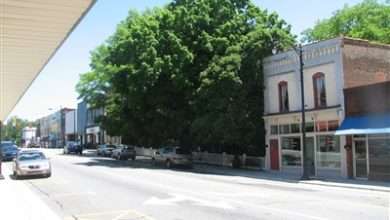History Of Danville, Va

Early History
-
Before European Settlement: The region was originally home to Native American tribes, primarily the Saponi and other Siouan-speaking peoples.
-
18th Century: Settlers began to move into the Dan River Valley in the mid-1700s. The river was a major resource, providing water, transport, and power.
Founding and Growth
-
Founded: The city was officially established in 1793 and named for the Dan River.
-
Industrial Base: By the 19th century, Danville became a hub for tobacco processing, textiles, and railroads. The Danville Tobacco Warehouse system helped it emerge as one of the world’s top loose-leaf tobacco markets.
Civil War Significance
-
Last Capital of the Confederacy: In April 1865, after the fall of Richmond, Confederate President Jefferson Davis and his cabinet fled to Danville. For about a week, it served as the temporary capital of the Confederacy.
-
Davis issued his final proclamation there before fleeing again ahead of Union troops.
- The house where he stayed is now the Danville Museum of Fine Arts and History.
Post-War Recovery and Boom
-
Reconstruction and Growth: After the Civil War, Danville recovered by doubling down on its tobacco and textile industries.
-
Dan River Mills: Founded in 1882, it grew into one of the largest textile firms in the South and employed thousands of workers for over a century.
20th Century Changes
-
Civil Rights Era: In the 1960s, Danville gained national attention for its resistance to desegregation. The summer of 1963 saw the “Danville Movement,” with protests and clashes over civil rights.
-
Economic Shifts: The late 20th century brought the decline of both tobacco and textiles. Dan River Mills closed in the early 2000s, dealing a major blow to the local economy.
Recent Revitalization
-
Historic Revitalization: The city has focused on restoring historic districts, including the Millionaires’ Row, a stretch of ornate Victorian mansions from the city’s tobacco baron days.
-
New Industries: In recent years, Danville has invested in advanced manufacturing, technology, and workforce development to rebuild its economy.
Cultural and Historical Landmarks
-
Langhorne House – home of Lady Astor, the first woman in the British Parliament.






sssssssssssssssssssssssssssssssssssssssss